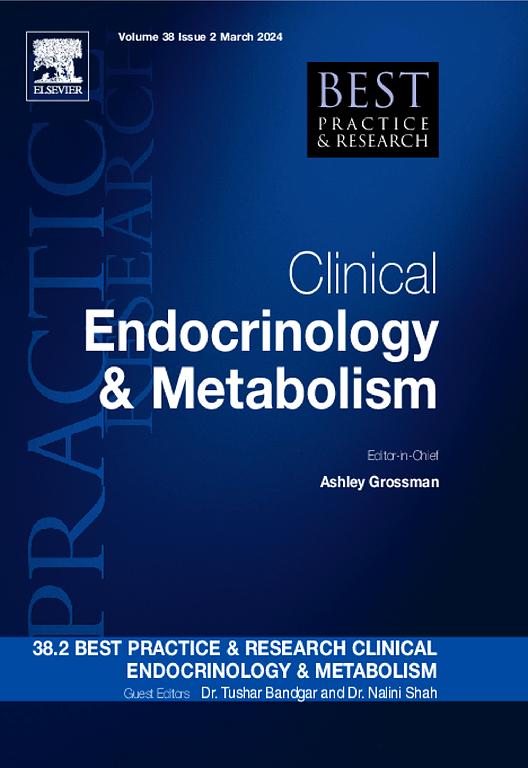创伤性脑损伤后的神经内分泌功能障碍:当前的见解和新兴的观点。
IF 6.1
1区 医学
Q1 ENDOCRINOLOGY & METABOLISM
Best practice & research. Clinical endocrinology & metabolism
Pub Date : 2025-05-01
DOI:10.1016/j.beem.2025.102006
引用次数: 0
摘要
创伤性脑损伤(TBI)不是一个边界有限的单一事件,而是一个复杂的、不断发展的病理过程。虽然最初的机械损伤可能是短暂的,但其后果可能会在生理系统中波及数月或数年。其中一个最不被重视但临床意义重大的后果是破坏下丘脑-垂体轴(HPA)。创伤性脑损伤后的神经内分泌功能障碍可以表现为各种形式——一些是微妙的,另一些是改变生活的——影响代谢调节、性健康、心理健康和康复潜力。这篇综述探讨了创伤性脑损伤中HPA功能障碍的病理生理学和临床意义,强调了目前诊断上的差距,并提出了一种认识这些后遗症的慢性性质的方法。本文章由计算机程序翻译,如有差异,请以英文原文为准。
Neuroendocrine dysfunction following traumatic brain injury: Current insights and emerging perspectives
Traumatic brain injury (TBI) is not a singular event with finite boundaries, but a complex and evolving pathology. While the initial mechanical insult may be fleeting, its consequences can ripple across physiological systems for months or years. One of the most underappreciated yet clinically significant consequences is the disruption of the hypothalamic-pituitary axis (HPA). Neuroendocrine dysfunction after TBI can present in various forms—some subtle, others life-altering—affecting metabolic regulation, sexual health, psychological wellbeing, and rehabilitation potential. This review explores the pathophysiology and clinical implications of HPA dysfunction in TBI, highlighting current gaps in diagnosis and proposing an approach that recognises the chronic nature of these sequelae.
求助全文
通过发布文献求助,成功后即可免费获取论文全文。
去求助
来源期刊
CiteScore
11.90
自引率
0.00%
发文量
77
审稿时长
6-12 weeks
期刊介绍:
Best Practice & Research Clinical Endocrinology & Metabolism is a serial publication that integrates the latest original research findings into evidence-based review articles. These articles aim to address key clinical issues related to diagnosis, treatment, and patient management.
Each issue adopts a problem-oriented approach, focusing on key questions and clearly outlining what is known while identifying areas for future research. Practical management strategies are described to facilitate application to individual patients. The series targets physicians in practice or training.

 求助内容:
求助内容: 应助结果提醒方式:
应助结果提醒方式:


